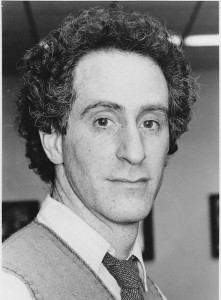
I wrote my first piece of music journalism in January, 1980: an interview with the members of a new Boston-based string quartet -- now defunct, just like the Cambridge, Massachusetts-based alt-weekly I wrote it for, the Real Paper. What little I knew about music writing came from reading music critics in newspapers and magazines over the years. But at that moment in my life I needed to make some money. More than that, I needed a direction.
Prior to moving to Boston in the summer of ‘79, I was a bass player. I lived on the Upper West Side of Manhattan around the corner from Manhattan School of Music, which I graduated from in 1975. I played in rock bands, jazz ensembles, symphony orchestras, theater companies, even a country swing band, The Central Park Sheiks. I spent about three years working off and on with the Belmonts, doo wop legends who at that stage of their post-Dion years were in demand on the nostalgia circuit. But after my second long stint on the road on a bus-and-truck theater tour, I came to the conclusion that as much as I loved music it was time to pursue a different career.
But what? I didn’t have a clue. Offered the opportunity to try my hand at writing about classical music for the Real Paper, I seized it. It wasn’t long before I realized that the audience for classical music writing is rather exclusive, which is to say, tiny. And while I dug classical music, I was an even bigger fan of other types of music. So I jumped at the chance to interview personal heroes like Dizzy Gillespie (on the sunny June morning he received an honorary degree from Tufts University), B.B. King (after he performed an intimate concert for the Nieman Fellows at Harvard) and Bob Marley (at a Logan airport hotel, in what no one suspected would be one of his last interviews).
By the time The Real Paper folded in mid-1981, I was hooked on arts writing. I freelanced for the Boston Globe, Boston Phoenix and elsewhere, but ended up at the Boston Herald-American, a Hearst paper seemingly on the verge of going out of business (times were hard for some newspapers back then, too). So many reporters had fled for more secure jobs elsewhere that those who remained referred to the Herald-American as “the death ship.” But the paper’s misfortune presented an opportunity for me, a hungry freelancer willing to take any story thrown my way. With the ranks of reporters dwindling, I scored more and more assignments. And in late 1982, just when it seemed like the Herald-American was about to fold, Rupert Murdoch bought the paper, which he re-christened The Boston Herald. Six months later I was hired as a features writer.
The Herald’s arts department was still an undermanned mess at the time. As a result I got to write about movies, theater, books, art, travel and more, before settling into what my main role as a music critic and columnist. Thanks to the kindness of my editors, I was given close to free reign to cover any kind of music, regardless of genre. Talk about a dream job. They paid me to listen to music.
I could have spent the rest of my life reviewing concerts and talking to and writing about musicians, but in 2006 I was asked to become the Herald’s Arts Editor, which afforded me the chance to work with writers who were as passionate about the arts as I was. I found I enjoyed editing as much as writing. Two years later, I was put in charge of the features department, which covered lifestyles -- food, fashion, health, trends and the funny pages -- along with arts and entertainment.
For nearly thirty years, going to work at the Herald was a blast. And then it wasn’t. The declining fortunes of daily newspapers resulted in drastic cuts in the paper’s staff and resources. When a buyout offer came in mid-2011, I took it. That gave me the time to start writing my recently completed first novel, “The Perfect Couple,” which I hope you’ll get a chance to read it soon.
And now for my second post-Herald project: The Katz Tapes.